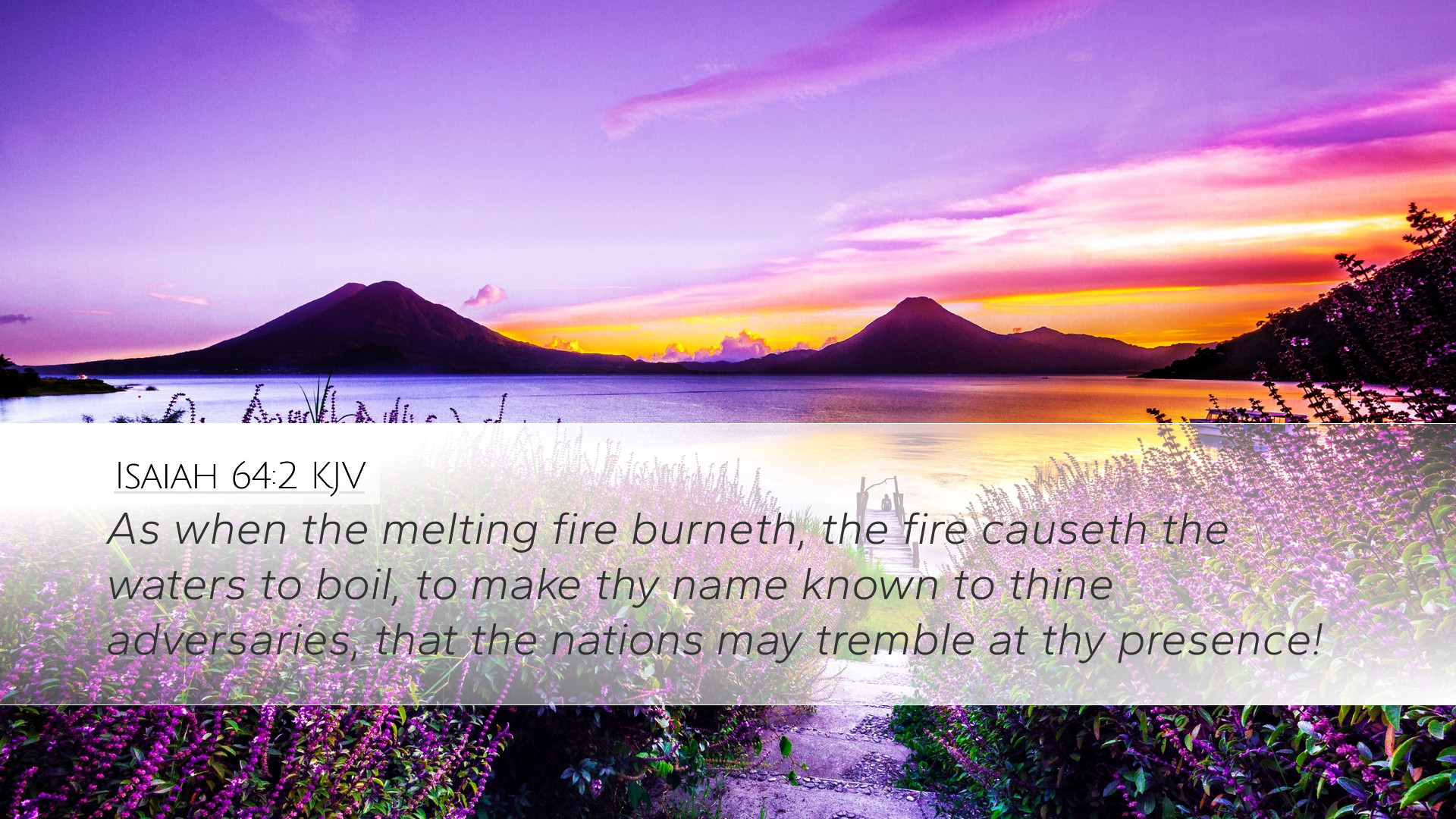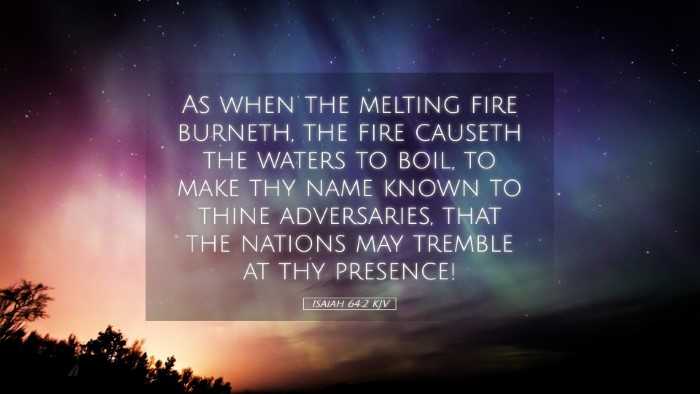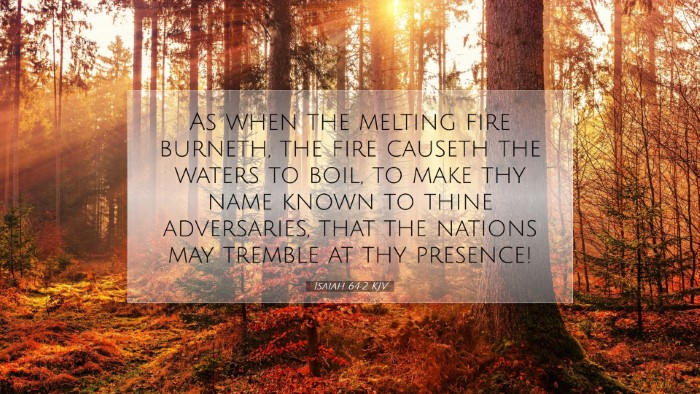Commentary on Isaiah 64:2
Isaiah 64:2 (KJV): “As when the melting fire burneth, the fire causeth the waters to boil: to make thy name known to thine adversaries, that the nations may tremble at thy presence.”
Context of Isaiah 64
The Book of Isaiah reflects a time of great distress for the people of Israel as they faced the threat of foreign nations. Chapter 64 poignantly captures the heart of the prophet as he cries out for divine intervention. It comes during a period when the Israelites were yearning for God's presence amid their suffering. The imagery in this verse emphasizes the transformative power of God, illustrating how the Lord can bring both destruction and enlightenment.
Insight from Matthew Henry
According to Matthew Henry, the verse serves as a reminder of God's almighty power. He reflects on the imagery of fire as a representation of God's holiness and wrath. The “melting fire” signifies how God's strength is able to overcome the hardness of the hearts in adversaries who resist His will. Here, Henry suggests that the prayer is not merely for deliverance but for God to reveal His greatness in the sight of the nations, so they may recognize His sovereignty.
- God’s Manifestation: Henry emphasizes that this request is for God to openly demonstrate His power. The prayer denotes a longing for God to return to visible action, akin to the dramatic displays in the Exodus narrative.
- Awareness of God's Presence: The purpose of this divine act is to cause the adversaries to tremble at His presence. This trembling indicates a recognition of God’s authority and serves both as a warning and an invitation to humility before Him.
Insights from Albert Barnes
Albert Barnes elaborates on the thematic significance of this prayer in Isaiah 64:2. He points out that the metaphor of fire that “burneth” and the boiling of water symbolizes purification and judgment. Such imagery stresses the dual aspects of God's character — both His judgment against sin and His ability to cleanse His people.
- The Fire of Judgment: Barnes interprets the fire as a force that could consume. This reflects the severe judgment awaiting the adversaries of God. He notes that the purpose is to make known His name, rising above the acknowledgment of mere existence to the recognition of His divine authority.
- Influence upon Nations: The trembling of the nations symbolizes a profound acknowledgment of God’s power over nations. Barnes suggests that such a display serves to establish His reign in the hearts of people across the earth.
Insights from Adam Clarke
Adam Clarke provides a more theological perspective, highlighting the covenantal aspect of God’s revelation in this text. He describes the verse as an urgent petition from a people enduring suffering, calling upon God to reveal Himself.
- Covenantal Faithfulness: Clarke presents the interpretation of this verse as a plea for reaffirmation of God’s covenant with His people. The invocation of God’s name in the face of adversity is portrayed as a request for the renewal of His favor.
- Understanding God’s Power: He notes the contrast between human frailty and divine omnipotence. Clarke emphasizes that while the nations might rise in opposition, understanding God’s power creates a divine fear that leads to repentance among the adversaries.
Theological Reflections
This verse bridges the gap between heartfelt pleas for God's revelation and the theological implications of His actions in the world. Each commentator offers insight into the nature of God’s interaction with humanity, recognizing that His actions are meant not only for judgment but also for redemption.
- God’s Sovereignty: Fundamentally, Isaiah 64:2 reminds us that all nations are under the sovereignty of God. When He reveals His power, it serves as a declaration of His dominion over all creation.
- The Nature of Prayer: This verse exemplifies fervent prayer, revealing the deep yearning for divine intervention. It encourages believers to approach God with their needs, seeking His transformative action in their lives and the world.
- The Role of Fear: The trembling of nations indicates that fear of the Lord can lead to a deeper understanding of His holiness and grace. This fear results not from a dread of punishment alone but a recognition of God’s holy majesty.
Conclusion
In Isaiah 64:2, we find a powerfully moving statement of faith and desperation, encapsulating both the essence of God's relentless love and His righteous anger. By employing vivid imagery, Isaiah calls upon believers to expect God's powerful intervention in their lives and the world. Through the insights of Matthew Henry, Albert Barnes, and Adam Clarke, we gain a multi-faceted understanding of this text, enabling pastors, students, theologians, and scholars to appreciate the depth of meaning embedded within this call for divine revelation.


